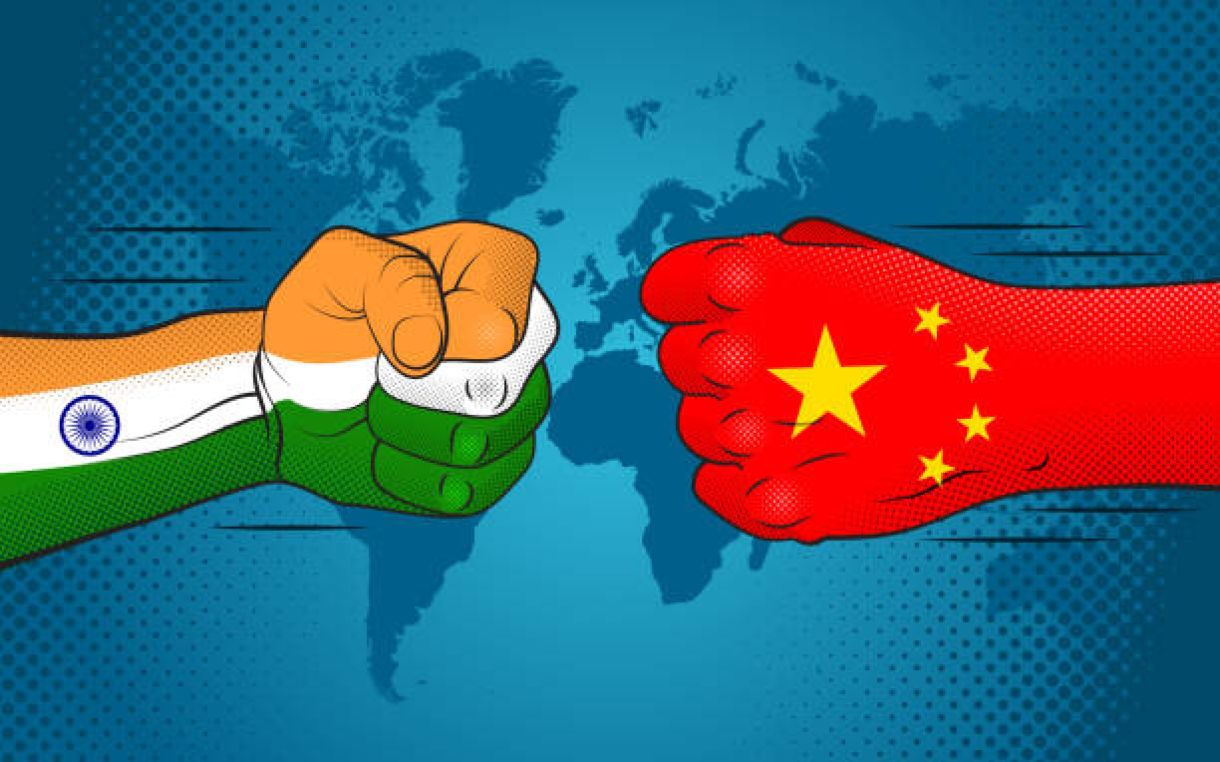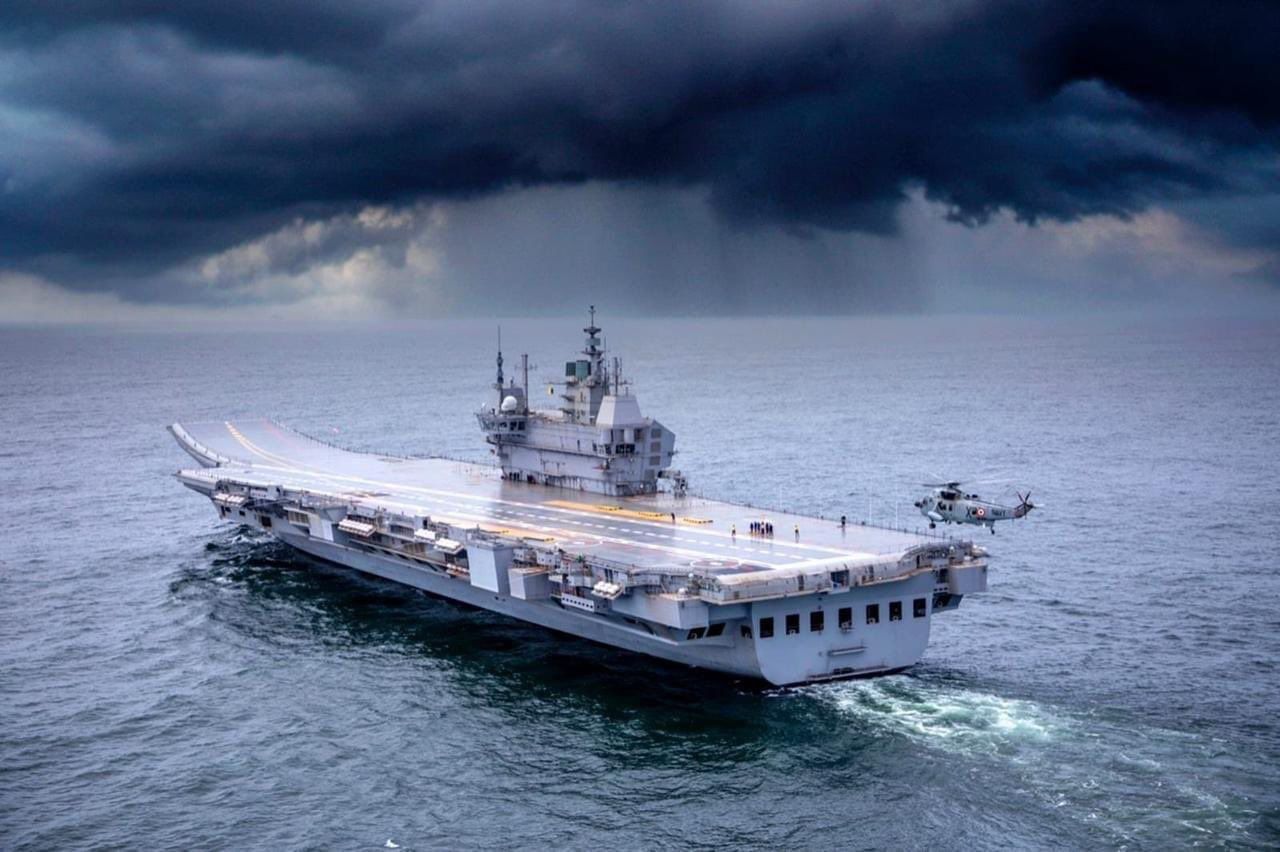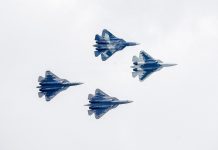China has the largest Navy in the world. One can understand why. Sea channels are her main commercial routes. Moreover, she must challenge the American Navy’s superiority in the Indian Ocean Region (IOR).
Beijing aims to use excessive power in IOR. PLA Navy strategists believe that will significantly reduce logistical difficulties through the presence of an overtly military facility in Djibouti and its proximity to numerous Belt and Road Initiative (BRI) ports.
China’s naval strategy planners have invited input from academic experts to analyze the parameters of the PLA Navy’s (PLAN) forays into the Indian Ocean for multiple purposes.
Speaking at the King’s College seminar, Zhou Bo, Zhou Bo, a former PLA officer, defense ministry official, and a senior fellow at Tsinghua University’s Centre for International Security and Strategy, stated that despite the Himalayan conflict that “cannot be resolved in the foreseeable future,” New Delhi shouldn’t view Beijing as a threat to its interests in the Indian Ocean.”
The simple logic behind this distortion of facts is to scuttle the role of the Indian Navy in the Indian Ocean, particularly about India’s membership in the Quad.
Even when the Quad- 4 was announced, Beijing extended unsolicited advice to India not to be a part of the US-led alliance with the tacit objective of hurting China’s interests and influence.
Regarding China’s perception of India’s capability of obstructing her program of sailing her ships in the IOR, Beijing has adopted a bullying attitude.
On the one hand, she advises India not to be part of the US-led anti-China Quad-4, and on the other hand, Ye Hailin, Vice-President of the Institute of Asia Pacific and Global Strategy in the Chinese Academy of Social Sciences (CASS), says “China has never considered India as the key concern; whether it is a partner or an opponent, it is always on a secondary level.”

The question is if China treats India as “a secondary level naval force” in IOR, why then does China issue intimidating notices to India to keep off the Quad-4 alliance led by the US?
Throwing his weight on the side of PLAN’s intended move to the IOR, Zhou Bo says Chinese naval activity in the Indian Ocean will increase in frequency.
Rationalizing China’s intended activity, he explains: “To safeguard China’s growing interests in the Indian Ocean and maintain the security of strategic sea lanes, the Chinese Navy must maintain or even strengthen its presence in the Indian Ocean.”
Great Ocean For Hindus
Zhou has been aggressive and spelled out the intentions of the PLAN in no ambiguous words. He said. “It is only a matter of time before a Chinese carrier strike group appears in the Indian Ocean. If New Delhi views the Indian Ocean as the “Great Ocean for Hindus” or India as the “Net Security Provider” for the Indian Ocean, friction and even violence between the two sides are likely.”
What does this senior fellow at Tsinghua University’s Centre for International Security and Strategy mean by the term ‘Great Ocean for Hindus’?
India is not a theocratic state that lands and oceans are to be assigned to religious entities. It is the reverberation of the imagination of western colonialists. At one point in time, they had even worse imagination of the Chinese people. Such epithets are self-destructive. Astute scholars argue but do not hate.
Who does not know that India has a dispute with China along the long Himalayan border? Beijing never fails to express its tradition of coveting territories on the other side of the McMahon Line.
A few days after the PLA Navy marked ten years of its first aircraft carrier Liaoning, a Chinese security officer & military expert said that India should be ready for the PLA carrier battle group that would be sailing in the Indian Ocean very soon.
If China considers India of the lower level of concern, why then does China want to strengthen the Pakistani Navy with submarines and the biggest warship it recently delivered to Islamabad?
The Western Pacific and the Northern Indian Ocean (from the Middle East and East Africa to the Strait of Malacca) have been earmarked by PLAN as the core zones of activity. The sailing of PLAN ships in the Indian Ocean is a brazen provocation.
Chinese ships have been carrying on clandestine surveillance of the Bay of Bengal (BoB). China’s IOR plans are also meant to explore the mineral wealth undersea. China mining the hidden minerals is a direct threat to India’s natural resources.
Zhuo’s assertion that India must not try to assume the role of a “net security provider” in the region indicates that there could be a challenge to the status quo in the IOR, as well as to India’s policy objectives in the region that it regards as its backyard.
A “Net Security Provider” tackles its security concerns by enhancing the mutual security of more than one country. This is done by addressing common security concerns, including dealing with transnational piracy, responding to disasters, etc. That is the textbook definition of the term.
Here the Chinese commentator has used it in a belittling sense that India is providing non-combat support to the Quad-4 member states. Criticism and derogatory remarks reflect China’s exasperation after India launched the indigenous aircraft carrier Vikrant and is building another aircraft carrier, more than 75 percent of its size, to be delivered to the Indian Navy in a couple of years.

Beijing’s game plan of weakening India’s resolve to be part of Quad-4 indicates China’s inability to comprehend the broader imperatives of an alliance among the four top democracies of the world.
India is with the Quad because India is committed to having democracy as her political philosophy. Whenever and wherever India sees that democracy is under threat, she is unhappy and disturbed.
The same is true about the smaller but democratic island nations in the IOR or the South China Sea. India and the US may have differences on some issues and nations do have differences, particularly democracies.
But that does not mean allowing minor differences must lead to a parting of ways. Many fundamental interests and parameters do not change with the change of regimes.
As the largest democracy in the world and with one-fifth of the world’s population, India cannot afford to remain away from the limelight. Her role is much more significant than what one thinks ordinarily.
- Padma Shri KN Pandita is the former Director of the Centre of Central Asian Studies, Kashmir University.
- Mail EurAsian Times at etdesk(at)eurasiantimes.com
- Follow EurAsian Times on Google News




